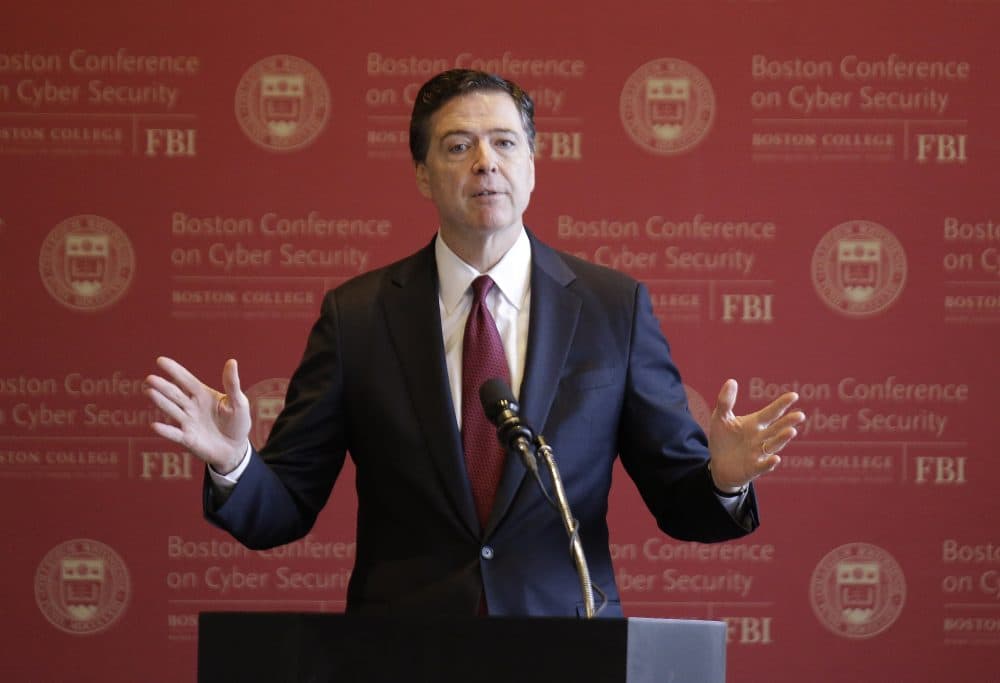Advertisement
In Boston, The FBI's Comey Warns About Threats Of Cyber Intruders
Resume
FBI Director James Comey said Wednesday that the cyber threats the country faces are "enormous," and he does not know whether we can stay ahead of them.
Comey delivered the keynote speech to a conference on cybersecurity at Boston College.
His statement followed the release of thousands of documents revealing what the organization WikiLeaks claims are sophisticated CIA tools for cyber attacks. According to the documents, those tools can break into phones, computers and even internet-connected television sets.
This WikiLeaks story comes amid the long-running story involving alleged Russian hacking of the Democratic National Committee.
But Comey spent his trip to Boston dodging questions from reporters. He made it clear he wouldn't be talking and wouldn't be taking questions about either issue.
"You can ask me about anything," Comey told the conference attendees. "I'm very slippery, I'll avoid talking about anything I don't want to talk about. But the questions have to come from the tables and not the partners in the back."
That "partners in the back" was a polite reference to reporters following Comey with even greater interest since President Trump claimed his phones had been tapped. Comey reportedly made a private request of his superiors in the Justice Department to dispute the president's claim.
And because he was evading those questions, Comey invited speculation about what he meant by other statements. He has served three and a half years of his 10-year term of office.
"You're stuck with me for another six and a half years, so I hope you'll invite me back again," he said.
I'm not going anywhere, he seemed to be saying.
He turned to his speech and dark warnings about the threats of cyber intruders. He called for greater cooperation from private business, noting that a majority of companies that are attacked do not tell the FBI.
"If the information is not shared with us, we will all be sorry," Comey said. "Because you're kidding yourself if you then think, I'll just remediate this thing and it will go away. Because it will never go away."
Comey turned to the negative impact of encryption on the work of the FBI. Encryption has gained great popularity since Edward Snowden, the National Security Agency contractor, revealed the intrusive powers of U.S. agencies. Comey cited the final three months of last year, in which he said the FBI received 2,800 seized devices it was authorized to open.
"Twelve hundred of those devices, about 43 percent, we could not open with any technique, any technique," he said. "That is a big deal."
Devices recovered, Comey added, in investigations of career criminals, pedophiles, gangs and terrorists. Widespread encryption, Comey said, destroys the bargain Americans have made with their government that balances security and privacy.
He never acknowledged the new WikiLeaks document dump that reputedly reveals CIA tools and programs named "Wrecking Crew" and "Anger Quake" that bypass the ability of encryption.
Several times Comey used the phrase "the tyranny of now" to explain how attending to short-run crises and workloads often hampers long-term preparation.
For Comey, the questions about Russian hacking, the president's claims of wiretapping and the like may pose the same "tyranny of now."
He was finished in 55 minutes and did not answer the questions he said he would not take. To a question on his way out, he responded, "Thanks for coming."
This segment aired on March 8, 2017.
